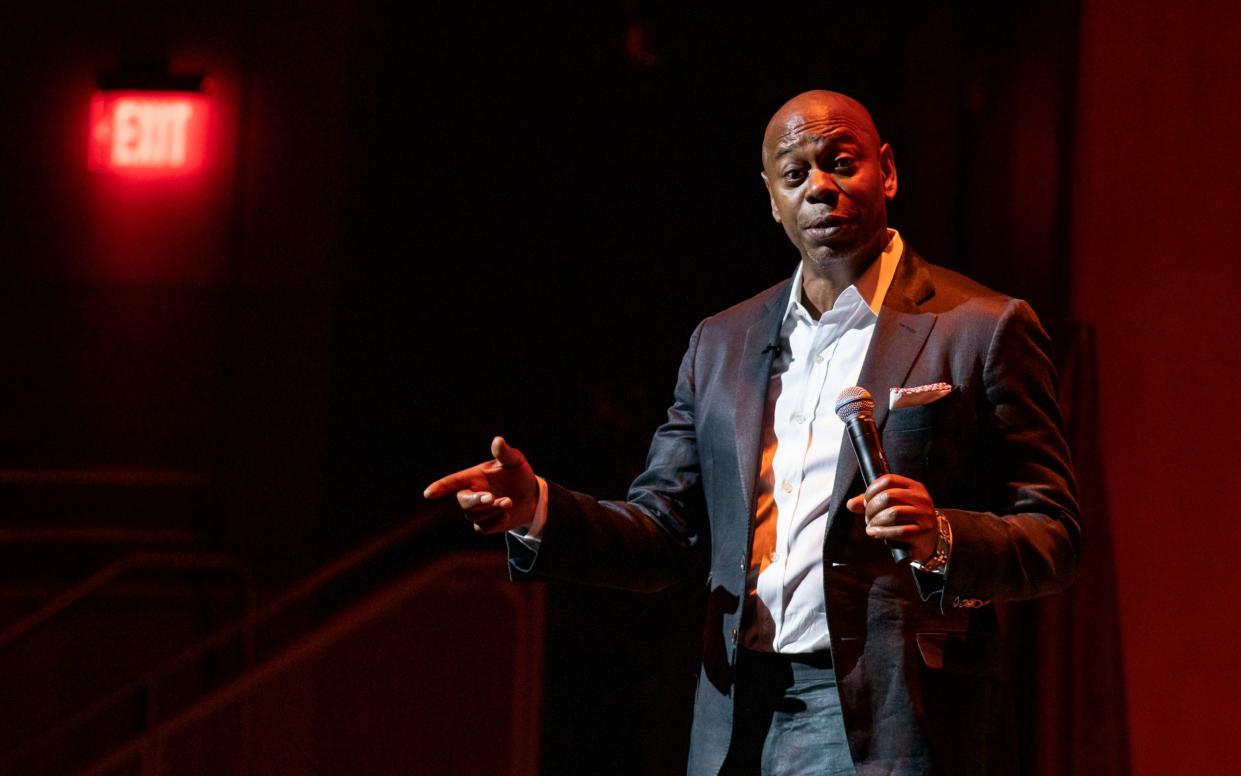Dave Chappelle: the controversial US comic sounds like a broken record in this Netflix special

For many years, Dave Chappelle came closer than many comics to being universally acclaimed, wisely following his iconic sketch show and early stand-up tours with 10 years of silence, allowing the legend to percolate. But despite the pleasant surprise of his 2016 comeback and the popular success that has followed, the US comedian has followed many other middle-aged comedians into a preoccupation with trans issues that has made him a controversial figure.
In The Dreamer, his seventh special for Netflix in six years, the 50-year-old may have climbed down from dedicating whole segments to his thoughts on the trans community, but he still returns to the topic compulsively, clumsily shoe-horning digs into unrelated routines.
There are many other contradictions within this hour, which needn’t be a bad thing. Part of Chappelle’s undeniable charisma is that he contains multitudes; the trick is – or should be – to embody those multitudes without being disingenuous. Entering pensively to the subtle strains of Radiohead’s Daydreaming and a high-minded quote from Thoreau, two minutes later he’s doing an impression of a disabled person which would have looked out of touch 30 years ago. Part of the problem, though, is that the audience is only laughing at the idea that someone else is going to be offended by the material, rather than because it is funny, which, sadly, it isn’t.
His stories have the benefit that we already know all the characters. After decades in the game, his anecdotes are populated exclusively by Chris Rock, Norm MacDonald, Jim Carrey and Jamie Foxx namedrops – and there’s something kind of thrilling about that in the short term. In a bid for thematic heft, Chappelle describes these people (celebrities) as “dreamers” and identifies himself as one of them. His message to us: “You have to be wise enough to know when you’re living in your dream, and you have to be humble enough to accept when you’re living in someone else’s.” At the end of the show, though, he tries to turn it around. Actually, he tell us, we’re the dreamers and he’s living in our dream. But that’s the falsest stroke of all, especially when he ends with a montage of himself posing with his celebrity friends and shooting two-pointers on the basketball court while Aloe Blacc triumphantly sings “I’m the man” over and over again.
Performing to crowds as tame as this one, it must be hard not to get self-congratulatory, but there are cultural differences at play too – Chappelle is an embodiment of a very American comedic style, the untouchable wise-guy who literally has the last laugh in every scenario. Ultimately though, he’s hobbled by his self-regard, unable to interpret his own experiences as less than mythic, unable to see that repeating the same old material bears no new comedic fruit, and therefore unable to really challenge himself.
On Netflix now